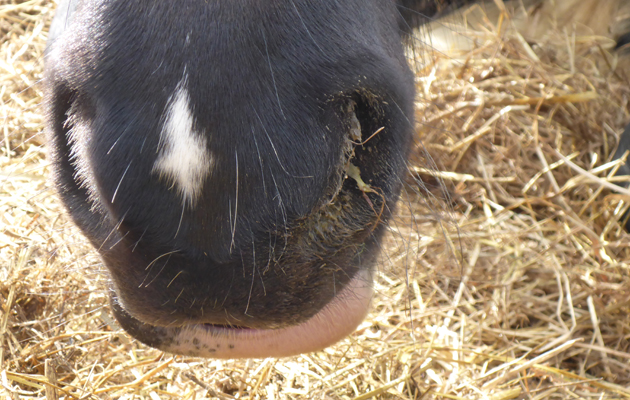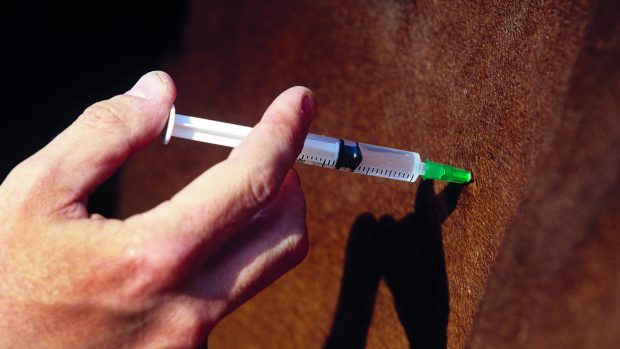An equine herpes outbreak has been confirmed at a leading Flat trainer’s yard.
Disease control measures are in place after a horse (not pictured) tested positive for the neurological strain of EHV-1 at Classic-winning trainer Kevin Ryan’s Thirsk yard.
The British Horseracing Authority (BHA) and National Trainers Federation (NTF) have issued a notice to all licensed trainers about the outbreak.
Bryan Smart and Michael Herrington’s nearby yards have also been put into quarantine due to their proximity to Mr Ryan’s base and the sharing of horseboxes.
No cases have been diagnosed at either yard.
“Cases of the neurological form of EHV-1 are occasional and, while the disease can be extremely serious for the affected horses, with proper surveillance and disease control the virus can usually be effectively contained,” said David Sykes, director of equine health and welfare at the BHA.
These include increased biosecurity, further testing and quarantine. The BHA has placed a temporary “quarantine stop” on Mr Ryan’s yard, preventing him from making declarations for races in Britain until further notice.
“While the risk of the virus being transmitted in a controlled raceday environment is relatively small, it is in theory possible that horses from the yard in question may have been infectious some time before the disease was diagnosed,” added Mr Sykes.
“For this reason we have taken measures to alert trainers, as well as racecourses and veterinary surgeons, to be vigilant to the clinical signs.
“The decision to close the further yards is based on the identification of risk factors, namely the proximity of yards and the sharing of horseboxes.
“These measures have been taken as a precaution, with the safety of the horse population very much in mind.”
Article continues below…
You might also be interested in:

Containing equine herpes *H&H VIP*
It’s a worrying time when reports of deaths

Equine herpes virus: what you need to know right now
Practical advice on recognising the early signs of

‘Stop the vilifying’: owners urged to speak out to tackle disease outbreaks head-on
"Imagine how much better off we would be
Equine herpes virus is present within the horse population worldwide. There are two common types, EHV-1 and EHV-4. Of these, EHV-1 can cause respiratory disease in young horses, abortion in pregnant mares and neurological paralysis in horses of all ages. EHV-4 usually results in a lower grade of respiratory disease, but can still cause abortion and neurological paralysis.
For more information, visit the NTF code of practice for infectious diseases of racehorses in training or the Animal Health Trust’s guidance on EHV.
For all the latest news analysis, competition reports, interviews, features and much more, don’t miss Horse & Hound magazine, on sale every Thursday




